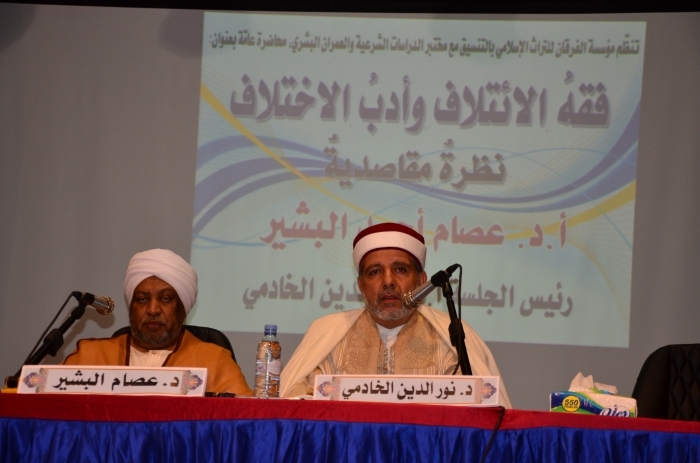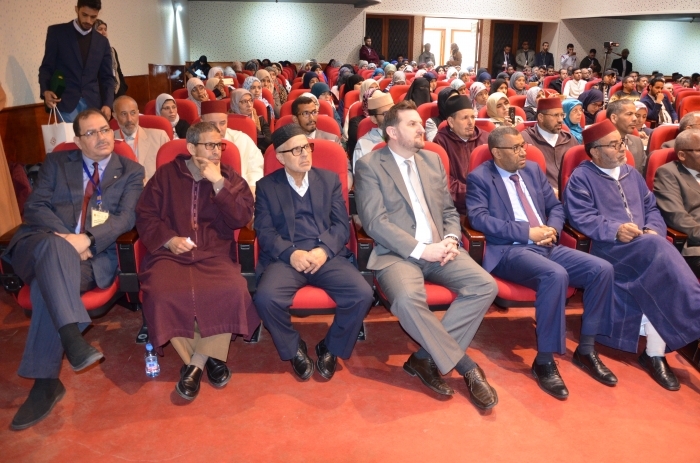The Centre for the Study of the Philosophy of Islamic Law, belonging to Al-Furqān Islamic Heritage Foundation, organised a public lecture delivered by Professor Issam al-Bashir on the subject matter of maqāṣid.
The lecture titled “Jurisprudence (fiqh) of accord and etiquettes of disagreement: a maqāṣid-based perspective” coincided with the commencement of the 14th Training Course on the Philosophy of Islamic law held in Meknes. Delivered on Wednesday 2 May 2018CE (16 Sha‘bān 1439AH) at the Faculty of Letters & Humanities in Meknes. The lecture was moderated by Professor Nour al-Din al-Khadimi.

Following opening remarks by Professor al-Khadimi, Professor Issam al-Bashir proceeded to deliver his valuable lecture underpinned by two key maxims that form the foundation of accord (i’tilāf) and three principles that frame disagreement (ikhtilāf).
The two maxims are represented by (i) belief in the Oneness of the Creator; and (ii) belief in the diversity of creation.
The three principles are manifested in (i) the text and its implications; (ii) the Arabic language and its devices; and (iii) the person reading into the text.
He concluded that taking all these aspects into account prevents us from falling into ugly dispute that has negative consequences on the unity of the Muslim nation (Ummah). In his submission, Professor Issam al-Bashir drew attention to etiquettes and methods for properly managing disagreement. He also warned against those disruptive elements that undermine the peaceful nature of disagreement, reminding of the necessity to be just and fair towards the opposing side. He also noted the need to revise and correct certain concepts in the realms of vision and practice, urging a revision of ideas and opinions, while emphasising the distinction between criticism directed towards the idea and that directed towards the individual espousing it. Professor Issam al-Bashir concluded with a reminder that Muslims at this moment, more than any other time, were in greatest need for brotherhood and accord, rather than dispute and disagreement. Indeed, he lauded the jurisprudence of accord as one that guides to the truth, draws parties closer, creates common ground, and unifies.
At the end of the lecture, the audience made use of the opportunity to interact with the lecturer.



